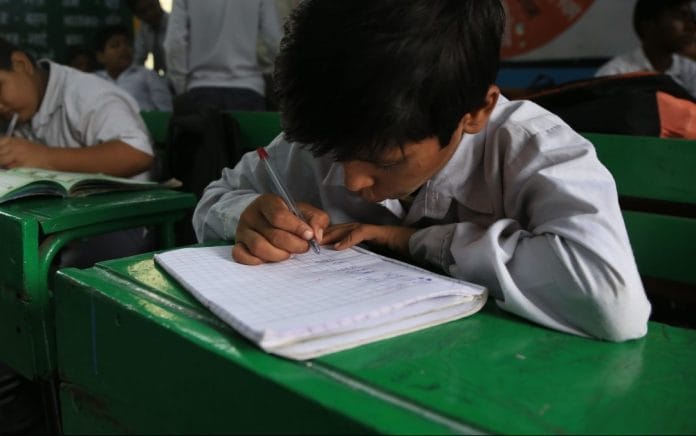Many educationists feel this move is neither viable nor acceptable. They recommend following the Delhi model of making it optional.
Bengaluru: Karnataka is working on a unique scheme to raise the quality of education in government schools — it wants children of government servants and elected representatives to be sent only to government schools. But the state is still searching for a legal framework to implement the scheme.
The scheme was proposed by V.P. Niranjan Aradhya, fellow at the Centre for Child and Law, National Law School of India University. He said the only way to improve the functioning of government schools is to get the children of the stakeholders educated in these institutions.
“Basically, the proposal is only for government citizens and elected representatives. It should be mandatory for them, because they are elected and appointed to establish, improve and provide good facilities during their public service. So it is their mandatory duty to demonstrate it through action,” Aradhya observed.
Education minister optimistic
Karnataka’s education minister N. Mahesh said the government is in the process of bringing about a policy, but it will only be moved after a detailed analysis report has been submitted on the number of schools that have been affected and what can be done to improve the educational system. An assessment is yet to be made on how many officials send their children to government schools.
Also read: India has 10 lakh teaching vacancies. India has 4 lakh excess teachers. Go figure
“By asking them to enrol their children in government schools, it will only help them be a part of the decision making, and they will automatically work towards improving the system,” he said.
The challenge for his department is to try and find out if it can have a legislation that can order or force government employees to send their wards to government schools.
The problems
Many educationists feel this proposed move is neither feasible nor acceptable.
While Delhi has a rule in place that government servants should send their children to government schools, it is not mandatory, as Karnataka proposes to make it. Some feel that making it optional to send children to government schools would be an effective way to introduce community schools in the state and also boost the education system in government schools.
“But making it mandatory is totally unacceptable. You cannot force anybody,” said an education department official on the condition of anonymity.
R. Basavaraju of the Grassroots Research and Advocacy Movement (GRAAM) said it is not possible to bring about such a rule.
“In India, rules are made to be broken. We don’t fall in line with a regimental thought process. There are a number of schools, but the important point to note is that everybody will ask for basic infrastructure and quality, which does not exist for now,” he said.
Also read: Haryana wants to ‘befriend’ English, will teach primary students one sentence a day
“In most of the schools, there are no proper toilet facilities; there may be a building but they have no maintenance. Secondly, in the name of re-allocation of teachers, many subject teachers have been removed. So, effectively, people will question.”
GRAAM’s research has found a marked decrease in the enrolment of children in government schools since 2010-11.
In 2010, the number of enrolments for classes one to seven in government schools was 43,91,157 and in private schools 22,37,004, but by 2017-18, the government school numbers had dropped by about 5 lakh. GRAAM observed that the enrolment in primary classes in government schools only showed that many parents preferred if their children attended private schools.
Aradhya himself noted this severe decline in enrolment, decline in faith in government schools, and the increase in privatisation and commercialisation of education, which goes against the basic principles of education, social good and social transformation.
“I think it is not in accordance with the Constitution of India where we talk of right to equal opportunity. That should be the mandate. I personally feel the priority should be to build the education system based on the values of the Constitution of India,” he said.
Basavaraju said a classic example of the success of government schools are the Kendriya Vidyalayas, which have been extremely competitive and have provided adequate facilities for children. He said if the state can manage to bring its schools up to that level, then the proposed scheme may be considered.
Legal issues
Kimmane Rathnakar, former primary education minister under the previous Siddaramaiah government, expressed doubt that this decision would get legal sanction. Though he agreed that it was important to try and remove disparity of education, it was also important to note that there was nothing wrong in trying to attempt the American model of education.
“Earlier, we did not have adequate money to fund the educational system, so it was given off to private institutions to run it. But now you cannot ask them close down. They have also contributed enough in providing good facilities and world class education,” he said.







It is good idea to improve the education. More so all principals and teachers of govt schools should compulsorily enroll their children. They should also bear the brunt for poor teaching outcome. This will improve the quality of teaching. The govt. should also made some quota fixed for the govt jobs/scholarships etc for those students who receive their education govt schools. This idea of ‘SKIN IN THE GAME’ may perhaps work.